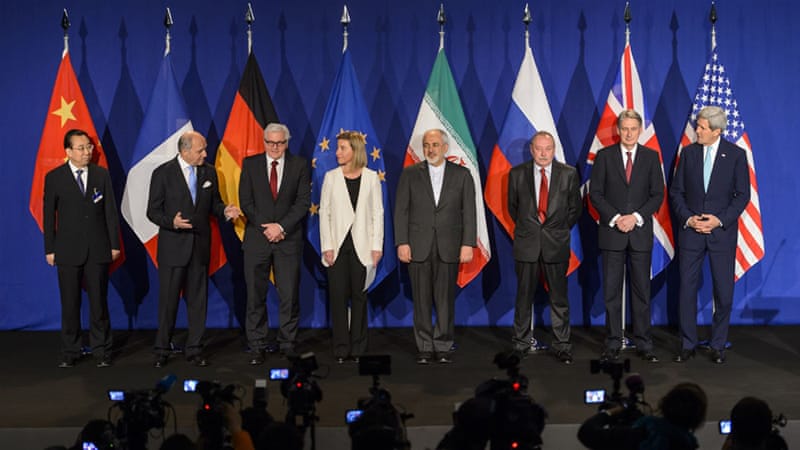 |
| Memo to the US Congress: These guys don't give a shit what you think |
But for many reasons - Israel's domestic politics, Saudi Arabia's viciously sectarian state religion, the American hostage crisis and its historical enmity - Iran had to be singled out. An entire case had to be built that Iran was a dangerous, rising regional power desperately focused on developing nuclear weapons. If you note a chilling similarity to descriptions of Saddam Hussein's Iraq in post 9/11 America, you get a gold star. There were just too many agendas too well served by hostility to Iran, and Iran's leadership couldn't make the decisions necessary to get out of that box.
So now it all comes back to American domestic politics. The Israel lobby, their large congressional constituency along with their powerful media voices are in full-throated cry to kill the agreement. They can't explain why this would be a desirable outcome - after all, the deal is objectively good for all parties. But the state of hostilities with Iran is valuable to them all, and cannot be put at risk by diplomatic progress.
What the US congress refuses to understand is this is a global, multi-lateral agreement. The Europeans, the Russians and the Chinese invested huge amounts of time and prestige in getting the deal done. A few hundred hillbillies and extremists in the US don't have the power to alter the deal - they only have the power to alter America's participation in the deal, and hence how the world views American reliability in global diplomacy in the 21st century.
So here's what I'm thinking today. Maybe they SHOULD win the argument. It won't change anything - the sanctions will end, Iran will honor the deal, and the US and Israel will be on the outside looking in, shrieking in spittle-flecked outrage at their irrelevance and impotence. The only thing that would happen is the American Republican party would own the greatest diplomatic debacle in American history. They would have cemented a prominent place in the downfall of American global power. They would have contributed greatly to rising respect and authority for the EU, China and even Russia, all at America's expense. And the next time the US went to the UN, or to the negotiating table with another nation, the very first question will be 'why should we trust you?' Why don't you get your political leadership house in order first and THEN come and talk to us'.
The simple fact they are ignoring is that if the sanctions aren't lifted, Iran won't be obligated to comply with the terms of the deal. If the US Congress abrogates the deal, the UN will still pass a resolution lifting the sanctions - and the Obama administration won't veto it. The agreement will go into effect - the US congress will then pass legislation imposing additional sanctions on Iran - and Obama will veto them. If they somehow became law, the rest of the world would ignore them. The sheer irrational futility of American governance will become starkly clear to the rest of the world, and that will have unpredictable effects in the future.
...





